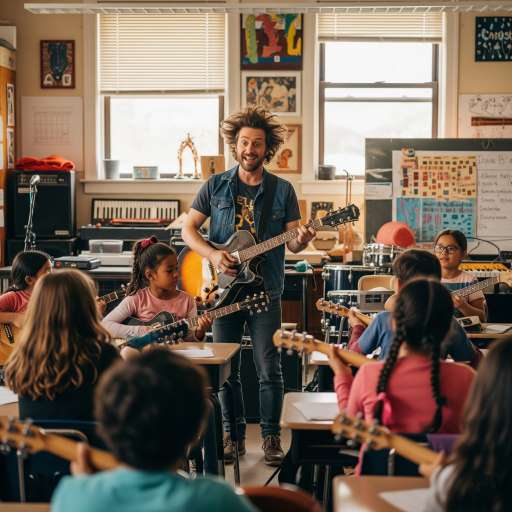
Deeper Meaning of Educational Quote
Educational Quote: “Children must be taught how to think, not what to think.” attributed to Margaret Mead
In this quote, Margaret Mead tells about education and intellectual development. It emphasizes the importance of critical thinking, independent thought, and problem-solving skills over rote memorization or indoctrination.
Here’s a breakdown of what it means:
- “How to think”: This refers to equipping children with the cognitive tools and processes necessary to analyse information, form their own opinions, evaluate different perspectives, and come to logical conclusions. It’s about developing:
- Critical thinking: Questioning, analysing, and evaluating information rather than accepting it at face value.
- Problem-solving: The ability to identify issues, brainstorm solutions, and implement them.
- Creativity: Encouraging original thought and innovative approaches.
- Logical reasoning: Understanding cause and effect, and making sound deductions.
- Curiosity: Fostering a desire to explore, learn, and understand.
- “Not what to think”: This means avoiding the imposition of specific beliefs, ideologies, or answers. It’s about empowering children to form their own convictions rather than simply adopting those of others. This approach respects their autonomy and encourages intellectual freedom. It warns against:
- Indoctrination: Teaching a set of beliefs as absolute truth without encouraging questioning.
- Dogmatism: Presenting information as unquestionable dogma.
- Blind obedience: Expecting children to accept information without critical evaluation.
In essence, the quote advocates for an education system that nurtures independent, self-reliant thinkers who can navigate complex information and make informed decisions, rather than passive recipients of pre-determined knowledge.
Here’s a story inspired by Educational Quote “Children must be taught how to think, not what to think.”
Philosophy Story: “The Real Lesson at Horace Green“

Dewey Teaching the Kids with Guitars:
Dewey Finn wasn’t supposed to be in front of a classroom. He wasn’t a trained teacher; he was a struggling guitarist who had just been kicked out of his band. But when desperation met opportunity, he faked his way into a substitute teaching job at the elite Horace Green Prep School.
At first, Dewey didn’t care about the kids’ education. He didn’t even care about the school. However, everything changed the day he heard them in music class. As he passed by the room, he paused, eyes widening as Zack Mooneyham played a perfectly timed scale. The kid had talent. And so did the rest of them.

Students Practicing as a Band:
Soon after, Dewey hatched a new plan—not to teach math or science, but to form a rock band with his class. At first, it seemed crazy. These were straight-A students trained to follow rules, memorize facts, and raise their hands before speaking. But Dewey saw something deeper: untapped creativity, hidden voices, and minds craving more than just test scores.
Rather than hand out worksheets, Dewey brought in instruments. Rather than lecture from a textbook, he gave them songs. Slowly, something incredible began to happen. The classroom became alive—not with noise, but with purpose.

Zack Writing Music:
Meanwhile, Principal Mullins remained unaware. As long as the grades didn’t slip, she didn’t ask questions. But even she started to notice something different about her students. They asked more questions. They debated, collaborated, and even challenged each other’s ideas—in respectful, thoughtful ways.
Zack, the quiet guitarist, once followed directions without question. But after a few jam sessions, he began writing his own music. “Why can’t we try a different chord here?” he asked one day. Dewey beamed. It wasn’t just about music anymore. Zack was thinking creatively, taking risks, and finding his voice.

Summer Leading as Band Manager:
Similarly, Summer Hathaway—once obsessed with grades and being teacher’s pet—discovered her natural talent as a band manager. She negotiated, planned, organized rehearsals, and even stood up to Dewey when she thought he was being unreasonable. Her confidence grew, not from memorizing facts, but from learning how to solve real problems.
Transitioning from passive listeners to active thinkers, the students transformed. Dewey never told them what to think. Instead, he encouraged them to ask why, to explore, and to challenge assumptions—even his own.

Students Defending Dewey in Front of Parents:
Nevertheless, the truth eventually came out. Parents discovered Dewey wasn’t a real teacher. They were furious. “You’ve wasted our children’s time,” one mother yelled. “They need structure, not noise!”
But the students didn’t stay silent. For the first time, they spoke up—not because they were told to, but because they believed in something.
Zack stood and said, “This isn’t just a band. Mr. Finn taught us how to express ourselves. I used to just copy what the teacher said. Now I write music. I think for myself.”
Summer added, “He didn’t just give us answers. He made us figure things out on our own. That’s what real learning is.”
At that moment, the room fell silent. The parents looked at each other, unsure. These weren’t rebellious kids—they were thoughtful, confident individuals who had learned more than grades could measure.
Even Principal Mullins, once skeptical, began to see the change. While Dewey may have broken the rules, he had followed a deeper principle: that education should empower, not control.

Final Band Performance:
In the end, Dewey couldn’t stay at Horace Green. Rules were rules. But the impact he left was undeniable. The students continued their band after school, and the classroom atmosphere never returned to what it was before.
Ultimately, the story of School of Rock isn’t just about music or breaking the rules. It’s about what happens when kids are given space to think freely. It proves that teaching isn’t about filling minds with facts—it’s about lighting a fire that fuels curiosity, creativity, and confidence.
As Dewey once told his students, “You don’t have to do what others tell you to do. You just have to find your voice and use it.”
And they did.
Here is the ending of educational story from the quote “Children must be taught how to think, not what to think.”
Moral of the story:
True education is not about memorizing facts or blindly following rules; it’s about learning how to think independently, ask questions, and express yourself. When children are encouraged to explore, create, and challenge ideas, they grow into confident, thoughtful individuals. Teaching them how to think empowers them to shape their own paths, rather than simply follow someone else’s.
To explore more on stories and dive into related ideas, be sure to check out the other posts where we cover all sort of stories related to quotes. Stay tuned for more…..
To explore more on quote topics, be sure to check out the other topics where we cover all categories of quotes. Stay tuned for more…..

